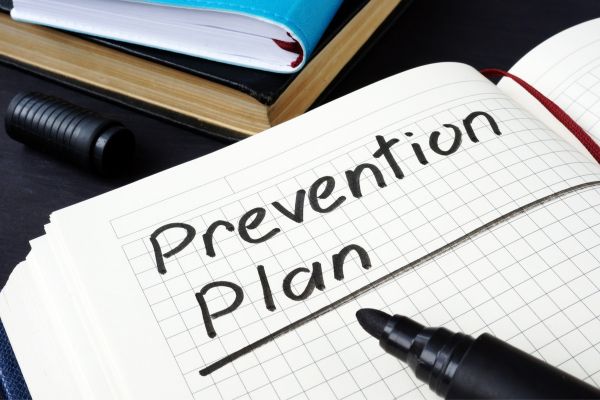
Before Crisis Strikes: Building Everyday Mental-Health Habits That Actually Work
What if your best mental-health strategy wasn’t what you did after you felt bad - but what you built beforehand to prevent you feeling bad?
We’ve been taught to treat mental health reactively. We wait until burnout hits, anxiety spirals, or low mood becomes depression. Then we act. But as recent research and headlines highlight, that approach isn’t working.
In 2024, over 700 people in Scotland died by suicide, a heart-breaking reminder that too many of us are still falling through the cracks. Mental-health professionals are now calling for what they term “upstream prevention”, which means supporting people before they reach a crisis.
At the same time, a recent survey found that two-thirds of adults who opened up about their mental-health struggles felt they didn’t get the support they needed. They tried to do the “right” thing by speaking up, and yet they still felt unseen or unheard.
So, what can we do differently? The answer lies in creating daily, protective habits that support our minds long before they reach breaking point. Prevention is about building a foundation of everyday mindfulness, awareness, and self-connection.
Here’s how we start:
1. Schedule a Daily “Micro-Pause” Before You Feel Stressed
Prevention starts in the quiet moments. Research shows that taking just 60 seconds to consciously breathe can reduce stress hormones and improve emotional regulation.
Try setting a reminder three times a day to stop, breathe deeply, and ask yourself: “How am I feeling right now?”
These pauses build self-awareness, catching tension or irritability before it snowballs.
2. Create a Personal “Resilience Toolkit”
Think of this as your mental-health first-aid kit. It might include:
A short breathing exercise
A grounding phrase (e.g. “I can handle this one moment at a time”)
A simple movement like shaking out your hands or stretching your shoulders
The key is consistency over complexity. Use small tools you can reach for instantly when things start to wobble.
3. Know Your Early-Warning Signs (and Share Them)
We all have subtle signals that our mental health needs attention, such as disrupted sleep, irritability, procrastination, or disconnection from friends.
Writing down your early signs helps you act sooner. Even better? Tell someone you trust what those signs are. When they notice them before you do, they can gently remind you to pause and care for yourself.

4. Reframe “Help-Seeking” as Pre-Hab, Not Rehab
Too often we see reaching out as something you do when you’ve “failed to cope”. But the research is clear: early intervention prevents escalation. Talking to a coach, therapist, or support group when you’re just beginning to struggle builds resilience. It's like a tune-up, not a breakdown recovery.
Think of it as a Mindfulness Maintenance Plan: regular self-check-ins, small conversations, and steady support before the crisis point.
5. Build a “Well-Being Environment” Around You
Your surroundings can make or break your mental state.
Start small:
Keep one corner of your home calm and clutter-free.
Reduce background noise or constant notifications for part of your day.
Bring nature in, by perhaps putting a plant on your desk, letting in natural light, or taking a short outdoor walk.
Environmental psychology tells us that even minor sensory shifts can significantly lower cortisol levels (stress hormones) and improve focus.
6. Make a “Compassion Contract” With Yourself
This one’s simple but powerful: write down three compassionate actions you’ll take when you notice stress building. For example:
“When I feel overwhelmed, I’ll step away for two minutes instead of pushing through.”
“When I start overthinking, I’ll use my grounding breath.”
“When I feel isolated, I’ll message a friend instead of scrolling.”
This contract turns awareness into action. It's a gentle reminder that you deserve support before the storm hits.
Remember: Prevention is Powerful
We can’t always prevent pain or struggle, but we can build emotional strength to weather them.
The truth is, your mental health doesn’t need a crisis to deserve care. It needs consistency, curiosity, and compassion.
If you’d like structured guidance in building these mindful habits, my Mindfulness Starter Kit is a great place to begin. It’s designed to help you move from “crisis management” to calm, confident living, step by step.
💬 What’s one small thing you could do today to care for your mind before it reaches breaking point?
Share it in the comments - you might inspire someone else to start early too.
